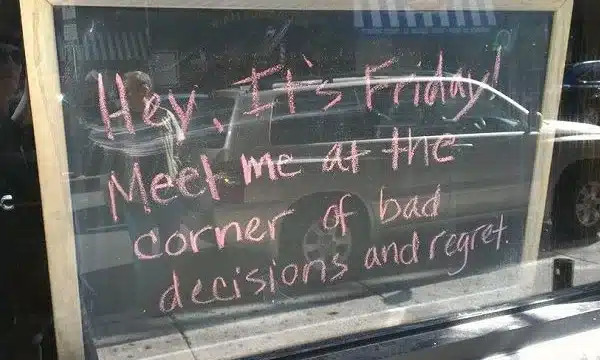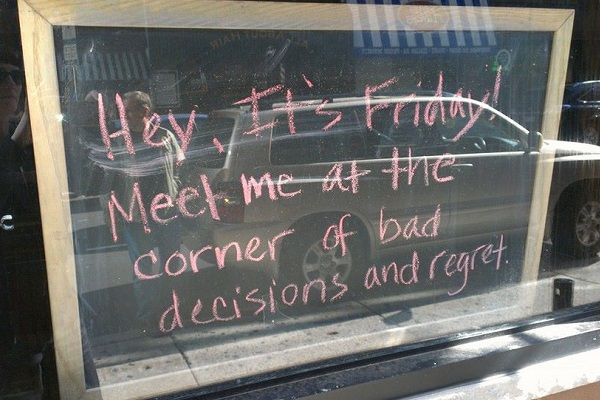Have you ever made an investment feeling as though you were fully informed of the risks, but then something happens and you realize you got in over your head?
Apparently, according to NBC News, there are a few Virgin Galactic investors who bit off a little more risk than they could chew. After the recent crash and death of one of the pilots of the test plane, 3% of the investors who committed a minimum of $150,000 a seat dropped their reservation. Thats about two dozen people.
Did they not know it was a trip to outer space before?
As a financial planner, I try to identify risks for my clients as much as possible so that they can make informed decisions about their money. Some risks are easy to identify and others become risky over time or, like this case, maybe after the fact. For example, in early 2008, buying a bank stock like Bank of America may have seemed a less risky decision; however, post mortgage crisis and billions of dollars in lawsuits, it suddenly seemed to be a significantly more risky investment.
Wasn’t This One Risky Already?
Buying a ticket on a space shuttle created by the think tank behind Richard Branson, though, seems like a risk these investors should have fully understood, doesn’t it? After all, NASA has invested trillions of dollars into space travel and they still experienced shuttle disasters.
Do you think that these investors thought Richard Branson would figure out what NASA couldn’t? How could they not see the inherent risk with this investment?
When you look at the list of supposed investors, though, I think you get a better answer where this investment was concerned. It’s a who’s who of Hollywood and Forbes celebrity lists. In their case, I think it wasn’t a factor of poor risk disclosure; I think it was a case of too much money and nothing to do with it. It was something to talk about at parties. For these celebrities, I guess there isn’t a risk too big for their money short of death.
Apparently death is the one risk they like to avoid.
What Can We Learn From This?
If you’re a common everyday investor, though, it’s important to understand the risks of your investments to the best of your ability. Most investors experience unhappiness with their investments when the investments cause them stress; however, the only time I see investments cause stress is when the client didn’t understand the risk before they bought the investment.
There are a number of risk indicators; however, for me I like to keep it simple. A good gauge of risk is just pulling up the stock chart for a stock. If the chart looks like an EEG reading for someone on crack, then you can assume it’s a risky stock. If the chart looks like an EEG reading for someone in a coma then it’s probably not a risky bet.
Want more on a related topic? Check out Yahoo! Finance’s article on The Legal Implications of Space Tourism.
There is nothing wrong with owning risk. Typically, greater risks provide greater rewards…like getting the rare opportunity to see outer space. However, you should own risk when and where you want to, so monitor your accounts to make sure you don’t own anything that could potentially blow up in your face without you knowing it.
You don’t want to cancel your ticket to retirement.
Did you ever invest money and not understand the risks? Would you pay $150,000 for the chance to fly as a space tourist?
Photo: Lulu Hoeller



Oh, great thinking: I love this simile. Its perfect for the stock market.
“Yeah, yeah, I’m fine with market risk. Yeah, buy and hold? Love it. No worries there. I’m going to be invested for ever”
==> “Space travel, awesome dude. Count me in. I’m going to be awesome”
“The market has fallen 30%”
==> There’s been a fatal crash.”
“It’s done WHAT???? I’m out”
==> “There’s been WHAT???? I’m out”
Exactly why people sell when the market falls…
Ha!! Love the conversation and it’s true, investors have it all the time. They want risk but they want comfortable risk. There’s no such thing.
Totally agree. When I was an advisor it was always, “I love risk. Give me more!” …as long as the market went up.
The second the market shook people came out of the woodwork telling me that they were risk adverse.